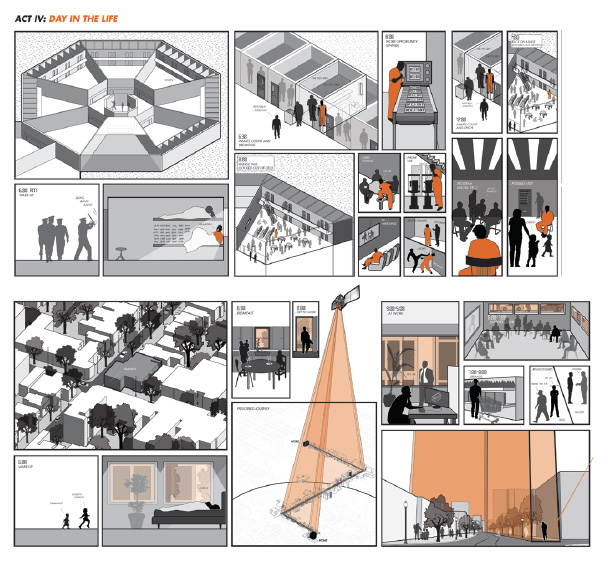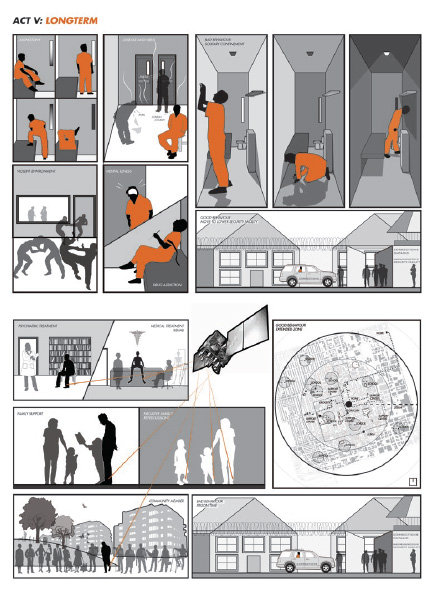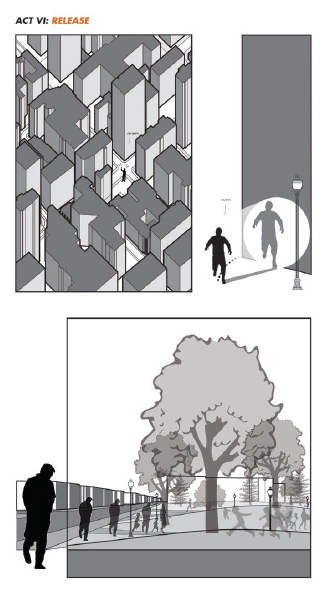MLA Thesis
Decarceration
Canada is in the process of increasing its prison population. With tough on crime policies and prison expansion, we are sending more and more people to prison at a time when crime rates are at an all-time low. Non-violent and first-time offenders make up the majority of people serving time, and in provincial correctional facilities the majority of offenders are being held on remand (legally innocent and awaiting trial). If a prison, by nature, is a place of coercive confinement fostering violence and bullying, is it a suitable process for people who pose no imminent threat to the public to experience before inevitably being released back into a community? This thesis looks at an alternative to incarceration that uses an existing technology (electronic monitoring) as sentencing and a way of reducing the prison population. Rather than being removed from the community and the city altogether, offenders serve their sentences within their communities and amongst their support systems as a way of assimilating back as a rehabilitated member of a community. The exploration chronicles the perception of the city through space and time as defined by a sentencing technology.




